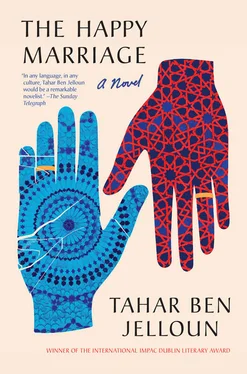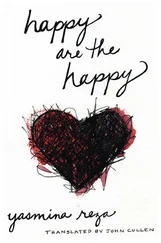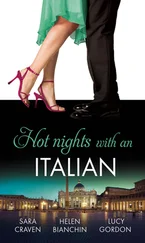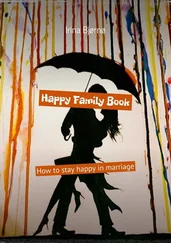The painter had been dumbstruck. It appeared that tribal solidarity was more powerful than any highway code.
VI. Casablanca, March 24, 2000
I’ve come on behalf of someone who doesn’t exist anymore.
He said he would meet me in these deeply moving places, but he will not be coming!
— Louis Jouvet, introducing himself to the housekeeper, who opened the door for him
CHRISTIAN-JAQUE, A Lover’s Return
The painter was dozing, his head rolled forward, his legs heavy, his hands pressed against one another.
He slowly opened his eyes. The Twins were playing cars while sitting on the lawn. His wheelchair was equipped with an SOS button, a bell, but he didn’t want to bother them. He’d heard them laughing and swapping jokes. He’d never been able to play any kind of game, not cards, not bridge, and not chess either. With the exception of football, he’d never excelled in any sport. He’d once played a game of tennis, but his friends Roland and François had made fun of him. One of them had said: “You’re playing like one of the characters in Antonioni’s Blow-Up !” While the other had added: “Your aerial game is so perfect you don’t even need to hit the ball!” He hadn’t been able to concentrate on his game. He’d spent the entire time thinking about his paintings. The painter had devoted his entire life to his work. He had taught a little, but then had spent the rest of his time doing nothing but painting and sketching. Nonetheless, he enjoyed watching sporting competitions on television. He loved the challenge at the heart of sport, how those athletes aimed to be the best in their field, by sheer force of willpower, hard work, and dedicated passion. He liked to remind his children that he had achieved his success step by step. He had climbed the ladder one rung at a time and had never fallen into the trap of going after what was easiest, nor had he been swayed by fads or trends, or the social life and gossip that ended up blinding even the best.
He had first exhibited his work at the high school in Casablanca where he’d taught. He’d had a hard time convincing the principal, but he’d known how to speak to him. The principal was an old friend from college, a man who held good social standing. He had married according to his parents’ wishes, his two children attended the French Mission, he spent his holidays in the south of Spain, and he aspired to build a house on credit. His name was Chaâbi, and he’d been nicknamed “Pop”—short for “popular.” A week after the painter had talked to him about having his work exhibited in the school, Chaâbi had come to tell him some news, as if he’d been the one who’d come up with the idea: “The ministry will be very happy to support this initiative, especially these days when strikes and riots abound: you deal with the students’ rebelliousness through your art! It’s surprising, I can see no risks and I can even predict there is a promotion in store for you!” As it happened, that was the first time many kids from working class neighborhoods had ever seen any art, especially contemporary art. Before the exhibition opened, the painter had organized several after-school meetings where he’d talked for a long time about his work in the hopes of making the students more receptive to art and teaching them how to look at a work. He’d played them a short film by Alain Resnais on the life of Vincent Van Gogh, and another by H. G. Clouzot that showed Picasso at work. They’d appeared interested, impressed even.
Over the course of the following years, many other painters took his lead. The experiment had yielded conclusive results. Thanks to him, painting had made its way into schools, and painters who rarely exhibited their work were able to leave their studios. He was proud of what he’d accomplished.
He had worked every day for thirty years, always applying himself with the same diligence, revising each painting as many times as necessary, refusing lucrative offers from many gallerists when they didn’t seem serious enough. Acclaim for his work had come slowly but surely. Nothing had come easy to him and some artists, especially the mediocre ones, had tried to cause him problems and had ganged up to lay traps for him in the hopes of sullying his reputation. These had been cheap shots that had nothing to do with his work in progress. Those mediocre artists had failed, but as that stupid old saying goes, “There’s no smoke without fire!” His father had been worried about him: “Sooner or later you’ll get devoured by frustrated people. Don’t show your face too often, be discreet. Never forget what the Prophet said, avoid extremes and always go for the middle ground! Look, whenever someone is under the spotlight, there will always be people who go digging around in the gutter, and if they don’t find anything, they’ll just make something up! The press loves it, and when you set the record straight, nobody cares, the damage has already been done!”
Thanks to his prudence and wisdom, the year the painter turned thirty a big gallery in London organized the first retrospective dedicated to his work, which was an invaluable springboard that helped launch him onto the world stage. Shows in other capitals had quickly followed. His agent had been especially happy; he’d called the painter from his office in New York and spoke in his broken French: “You see, it only takes a Jew to make an Arab a lot of argent , you see, mon ami , we’ve sold everything, the price will go up and up!” That same year, he was awarded the Prix de Rome, and had been able to spend a year in the Villa Medici and get to know Italy. His dazzling success hadn’t compromised his modesty or altered his behavior. His parents were proud of him, women admired him and surrounded him at all turns. He continued to work just as he’d always done. Implausible rumors made the rounds, then evaporated, as all well know they do. A Moroccan newspaper accused him of profiteering by exploiting his country’s beauty … A Libyan newspaper called for his work to be boycotted: “This is a painter who sold out to the Zionists, whose agent is a Jew, and who exhibits his work in galleries that belong to Americans who support Israel’s criminal policies!” So many bad memories flashed past his mind, but they didn’t affect him. He knew there was a price to pay for success. His father had often told him: “Victory has a thousand fathers, but defeat is an orphan.”
He was rational in all spheres of life, which contrasted sharply with the sumptuousness and extravagance of his hyper-realist paintings. The portraits he did from time to time, which were always executed in the strictest classicism, were the canvases that most closely resembled who he was as a man. Yet when it came to the rest of his paintings, he tended to vary the sources of his inspiration, and prove that his art wasn’t based on chance, but rather was the result of his thorough command of technique, which was the only way to transpose reality into a medium. He had a deep-seated aversion to schools that were either self-proclaimed or invented by art critics. As far as he was concerned, these were nothing but boxes where radically different artists were arbitrarily put together. He didn’t belong to any movement or school. When they asked him too many questions, he would simply tell them that he belonged to the Adoua School, which was a primary school in Fez frequented by the sons of Fez’s bourgeoisie, where he’d been enrolled by his father after completing Qur’anic school. That was where he’d learned to write and draw. Their teacher had been passionate about painting, and had often showed them books with reproductions of Van Gogh or Rembrandt. Some of the other children had laughed, but those reproductions had awoken a burning curiosity in him, which he still carried to this day.
Читать дальше












